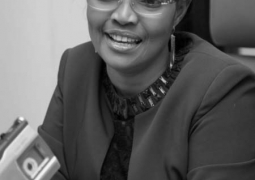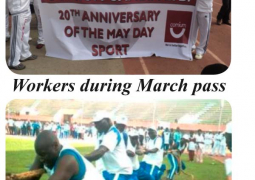The Independent Electoral Commission (IEC) has approved eight political parties as qualified to contest the upcoming December 1, 2016 Presidential Election and the following National Assembly elections on 6 April 2017 and Local Government elections on 12 April 2018.
This means the approved 8 have met “all the requirements and are bona fide political parties” registered with the Commission, except for two parties that have been disqualified and one dissolved.
This latest development has further allowed the IEC to set the pace for intensive electioneering to commence, leading to the voting day in about seven months’ time and thereby giving Gambians the opportunity to decide who they want to lead them or steer the affairs of the country.
Therefore, we would like to reiterate our concern that since we are a democratic society, there should be a level playing field for all, as we count down to voting day.
All political parties and/or politicians who have been approved to contest in the elections should be given equal access to the state media, and permitted to go around the country to conduct their affairs peacefully, even as we await the official election campaign period to be declared.
We should have in mind that both the public and private media should play their role by educating and informing the public.
As a democratic state and a signatory to Article 19 of the UN Charter, we should not wait until the election campaign period – which is usually two weeks to voting day - to allow political parties to have their affairs broadcast over the state media and in other private media outlets.
It should be noted that there is no second round in our election, according to the Election Act. What obtains in The Gambia is only an outright majority, which means that only a vote more than other contenders can decide the winner or the president-elect.
However, political analysts believe that a second round model with 51% majority of the votes, as it used to be in the country, should be revived since it could make a greater difference between those who are for and those against a winning presidential candidate.
It is also the model that obtains in many African countries.
As a nation counting down to presidential and general elections in 2016, 2017 and 2018, we should always endeavour to nurture and promote peace, as well as respect for one another.
We should as well desist from tribalism and using abusive language in our electioneering campaigns.
“I vote in every general election, but I’m not a party member or an ideologue. I’ve told anyone who I’ve voted for.”
Brian Lamb



